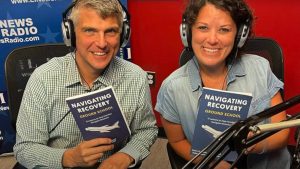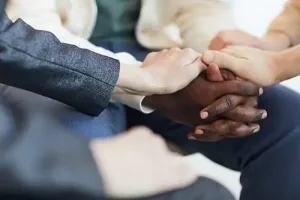
About ten years ago, I came very close to relapse. It began with a very bad bike accident. I fell off my bike at a high speed, landing on my hip. I sustained a fractured pelvis, and every time I put weight on my foot, the fracture would separate, making me double over in pain. I had never experienced pain like that before. I couldn’t walk.
Close to Relapse
I had a few years of sobriety at that point. My injuries were so severe that my doctor put me on an opiate painkiller, which I didn’t know much about at the time. Nor did the general population. It was just before the opiate crisis became a national news story.
Had I known then just how addictive these mediations can be, I don’t think I would have taken my prescription. Given the choice to take opiates today, I would do everything that I could to avoid them. Now I know that opiate medications are designed to create dependence, going right to the brain’s pleasure center. Many people cannot overcome the allure.
According to the 12 Step programs that I attend, and according to my sponsor, I could take medications as prescribed by a doctor without it being a relapse. As I remember the prescription now, I was instructed to take 1-2 pills every 4-6 hours, “as needed for pain.”
As someone that used to use drugs, I immediately inferred that the directions meant that I should take 2 pills every 4 hours. As far as I understood it, I was following the directions of my doctor and taking my medication as prescribed.
As Prescribed by a Doctor
I didn’t know it at the time, but I became dependent on that medication very quickly. I was so afraid that the pain would return when my medication wore off that I started taking them not “as needed for pain,” but out of fear of pain. To be fair, I was certainly in extreme pain. Every time I put weight on my foot I fell to the floor in agony. I did need the assistance of the medication.
I was on the opiate medication for twelve days. I had a plan to take my medication responsibly, and so I asked my mom to stay with me and give me my dosage when I needed it. I knew that there had to be controls on the opiate medication. I knew that it was dangerous, even if I didn’t know quite how dangerous. Through empathetic conversation, we talked her into reduced intervals between doses.
Close to Danger
I was close to a relapse, and I knew that I was exhibiting relapse behavior. However, I did take my medication “as prescribed” for relief from my pain. I maintained some control by giving my mom the medication to dispense. Without her help, I’m sure that I would have immediately begun taking my medication far too often.
My sponsor at the time, alas, I was on the bike ride with him, kept in touch with me. I spoke to him about my experiences and feelings regularly. Eventually, the time came that he and my mom asked me to stop taking the opiate medication. Without their intervention, I’m not sure that I would have stopped.
Reach Out to Your Doctor
Faced with a similar crisis today, I would speak to my doctor about other medications for pain. Based on my experience taking opiates ten years ago, even “as prescribed,” I just don’t think that I should have them in the house. Besides, now I, as well as the general public, have an understanding of just how addictive they can be. If I had to take them, I would certainly make sure that I had a friend (or mom!) around to assist me, and to help me control my use of the drugs. Even though I know I can take any medication “as prescribed,” I also understand that it’s important for me, like anyone in recovery, to be careful with medications that can cause physical dependence like opiates.
About Adam Banks
Adam Banks is a certified interventionist and the owner of Adam Banks Recovery. After receiving an MBA from the University of Chicago, Adam built a company acquired by United Health Care. His discipline and attention to detail comes from his former career as an airline pilot, holding an ATP, the FAA’s highest license.
Today, Adam is dedicated to helping others achieve long-term sobriety. His work has guided executives, pilots, and physicians on paths to recovery. Adam brings families together through a loving and inclusive approach.
Adam has authored four books on addiction. His recent work, Navigating Recovery Ground School: 12 Lessons to Help Families Navigate Recovery, educates families on the entire intervention process. He also offers a free video course for families considering an intervention for a loved one.
Adam is available for alcohol and drug intervention services in New York, Long Island, the Hamptons as well as nationally and internationally.




